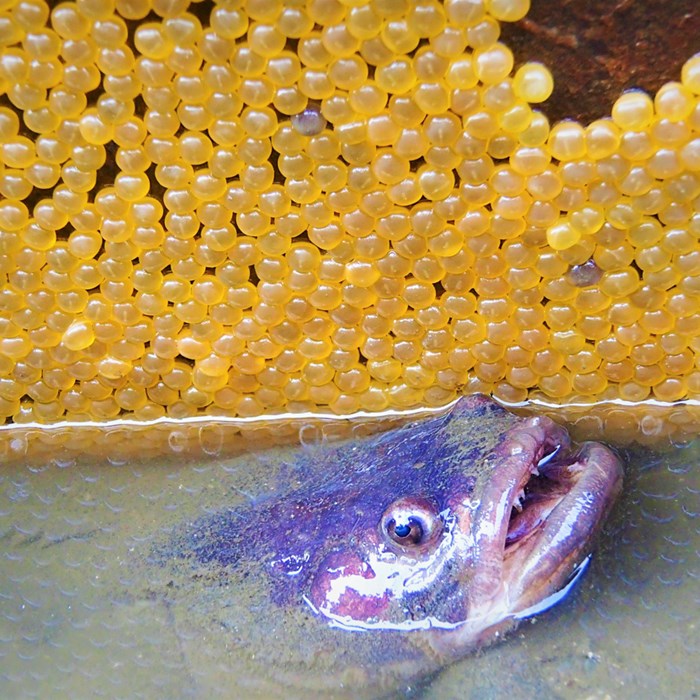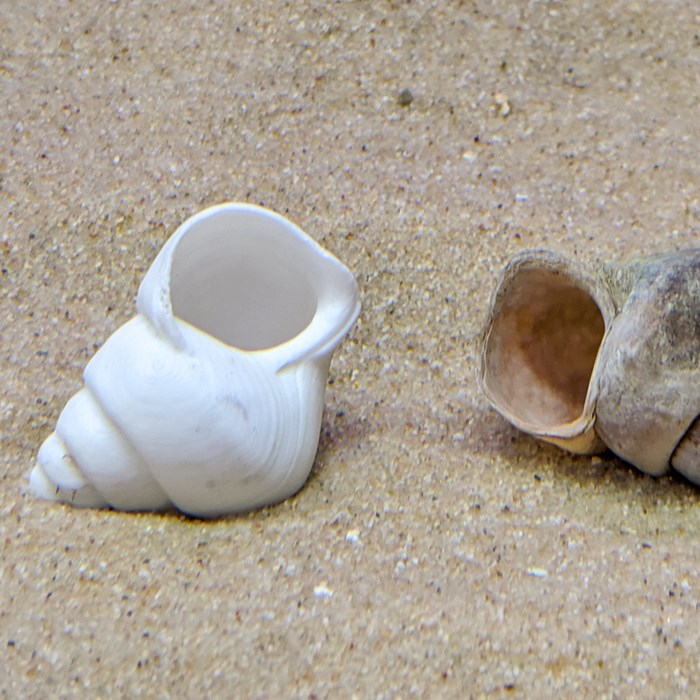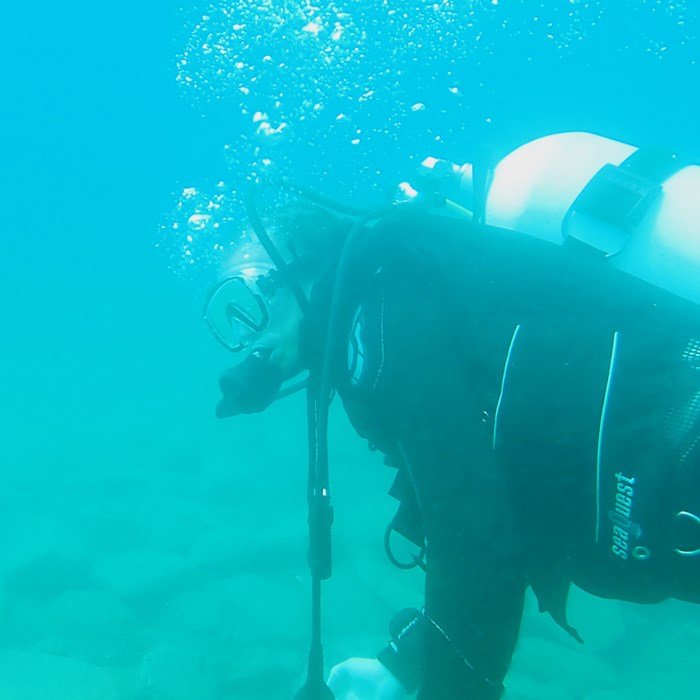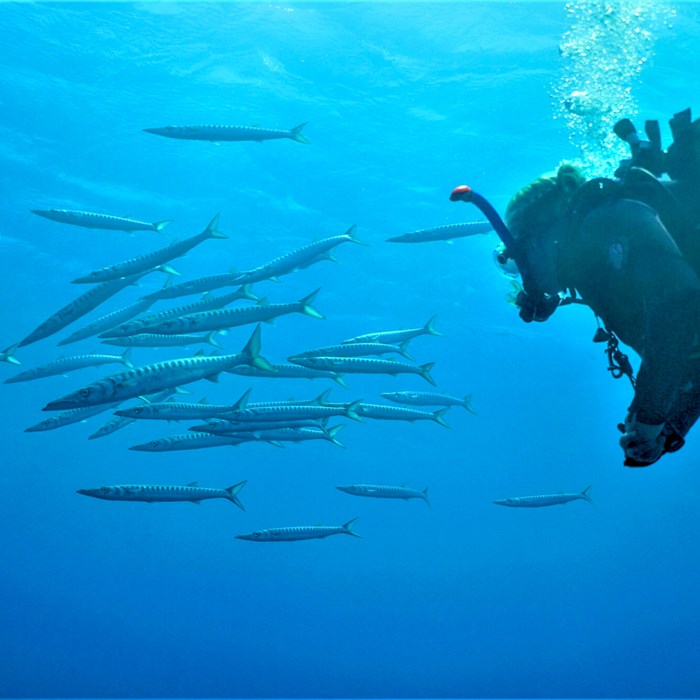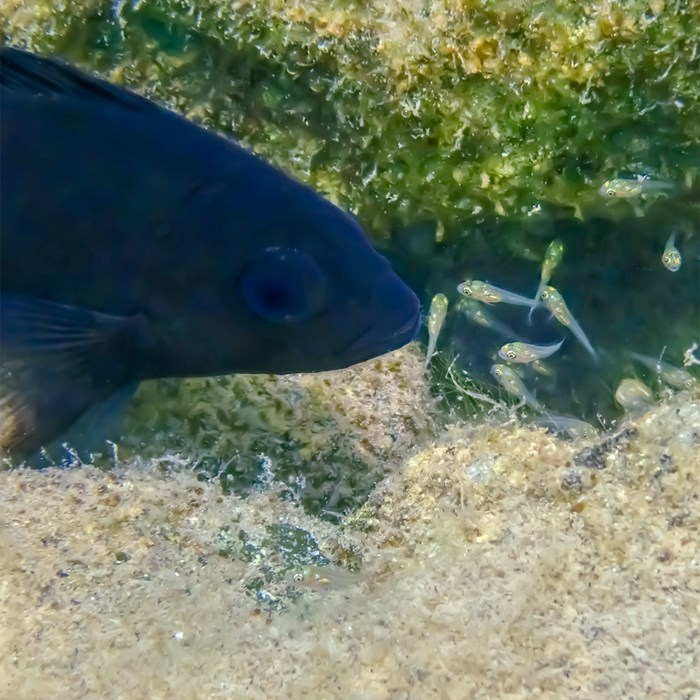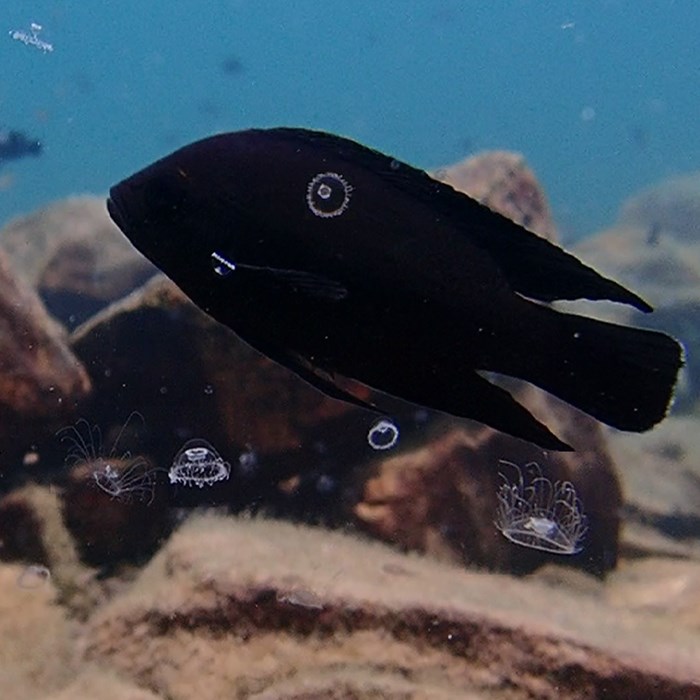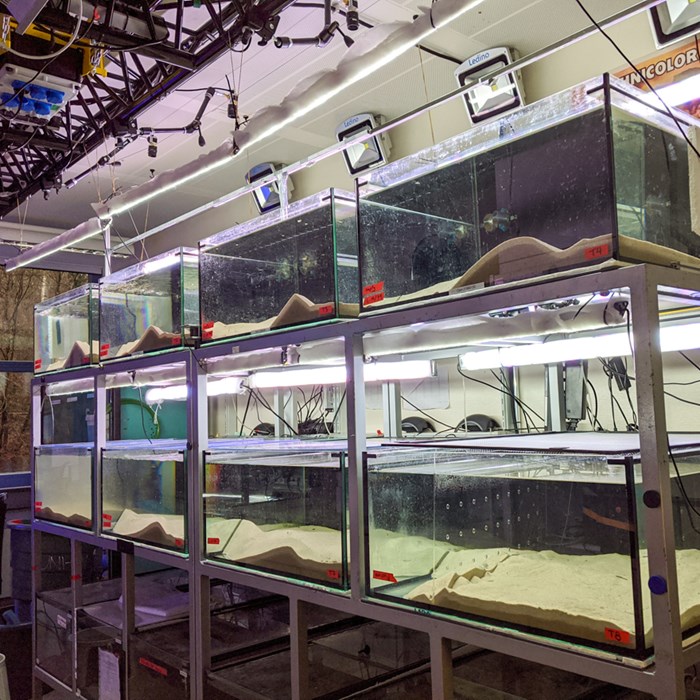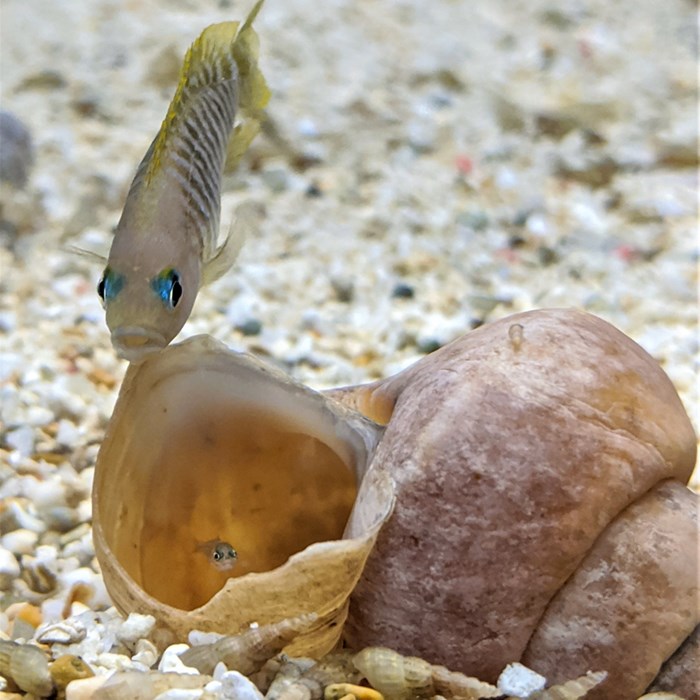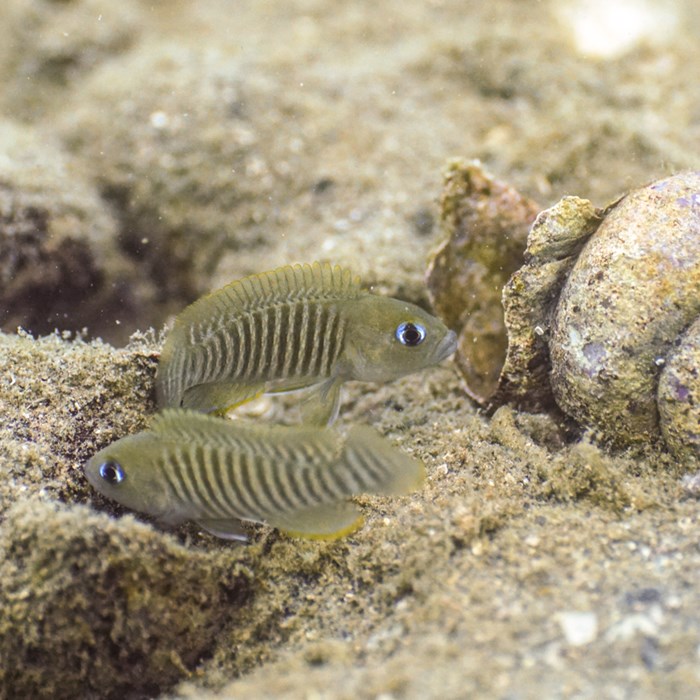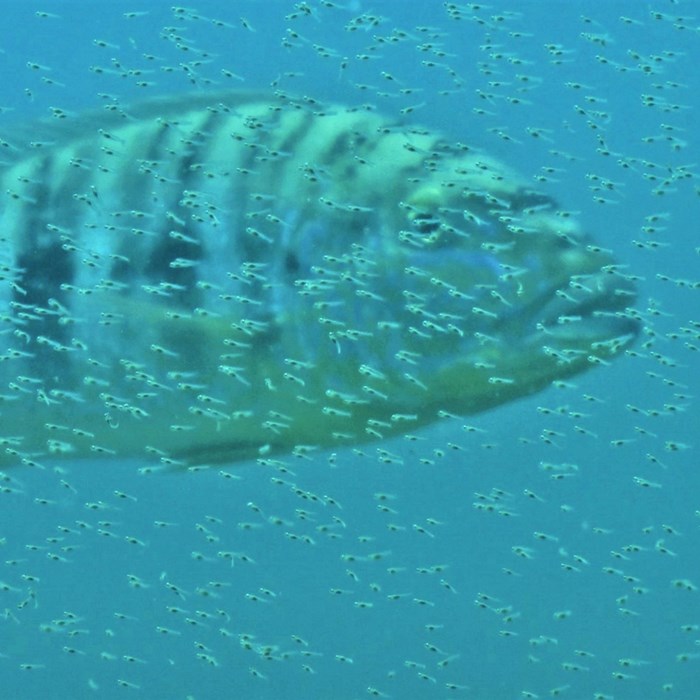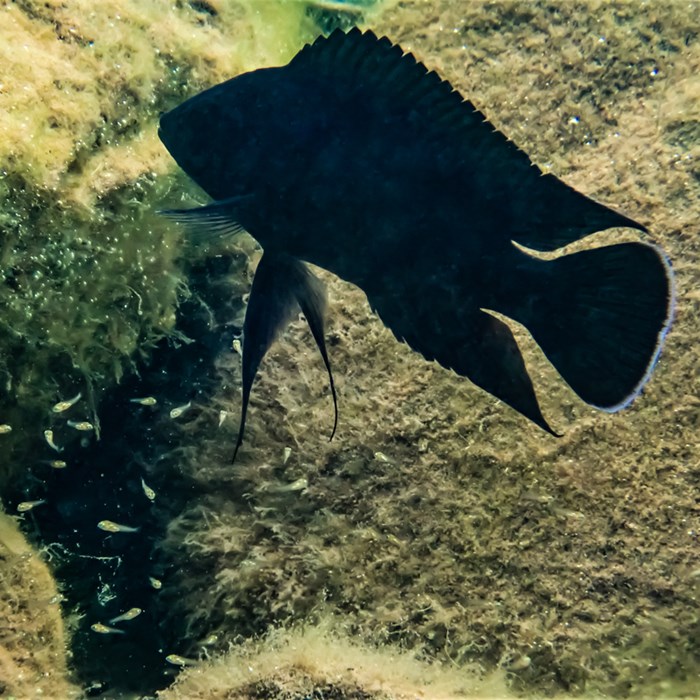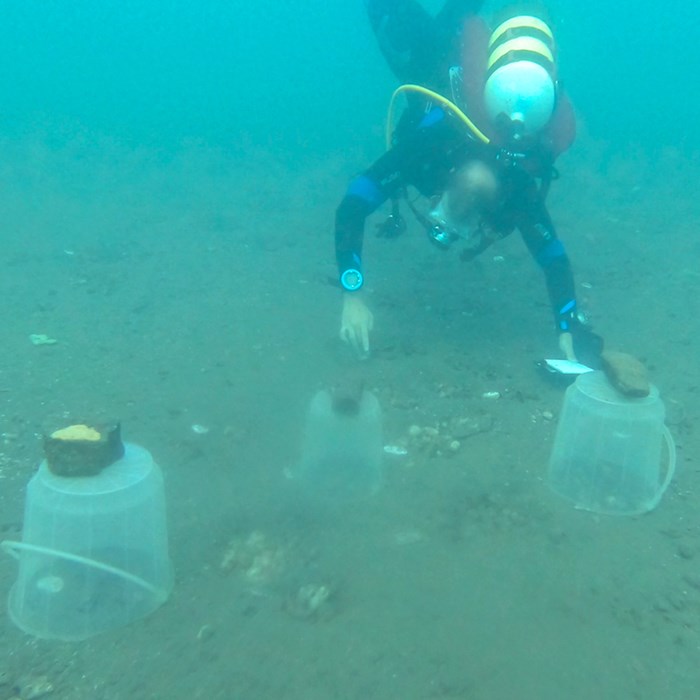Aneesh Bose

Presentation
I received my B.Sc. in Marine and Freshwater Biology from the University of Guelph, Canada, in 2012 followed by my Ph.D. from McMaster University, Canada, in 2017 where I worked with Dr. Sigal Balshine in the Aquatic Behavioural Ecology Lab (https://abel.mcmaster.ca/). My graduate research focused on parental care and alternative mating tactics in the plainfin midshipman fish, Porichthys notatus, a toadfish found on the west coast of North America. I then moved to Graz, Austria for a postdoc with Dr. Kristina Sefc (https://homepage.uni-graz.at/en/kristina.sefc/research/) followed by another postdoc at the Max Planck Institute of Animal Behaivour with Dr. Alex Jordan in Konstanz, Germany (https://thejordanlab.com/). My postdoctoral research has focused on mating systems and reproductive behaviours in African cichlid fishes. I am now continuing much of these research themes as a postdoc at the Swedish University of Agricultural Sciences, Umeå, with Dr. Tomas Brodin (https://www.slu.se/cv/tomas-brodin/).
Teaching
I give lectures on multiple topics including animal behaviour, evolution, cooperation and sociality, and invasive species in a courses both at the graduate and undergraduate levels.
Research
INTEGRATIVE RESEARCH ON ANIMAL BREEDING TACTICS
I use behavioural, physiological, and molecular approaches to understand the evolution of animal behaviour in reproductive contexts. Animals have evolved a staggering diversity of reproductive strategies, and many of these strategies contain puzzling elements that seem to raise endless questions. For example, why is it that individuals of the same sex and species sometimes express vastly different behaviours in order to achieve reproduction? Why do some animals choose to breed in seemingly harsh and extreme environments? Why do some parents abandon, terminate, or even consume their own offspring? How do individuals balance the tasks of caring for offspring at home with seeking mating opportunities elsewhere? These are only some of the questions that motivate my research, which lies at the intersections between traditional behavioural ecology, physiology, and molecular biology. I conduct experiments in the lab and the field to test ecological and evolutionary theory in order to better understand behaviour from both mechanistic and ultimate perspectives. Many of my recent studies have been large-scale, field-based endeavours to understand how the social and physical environments can affect individuals’ behavioural decisions as they vie, or cooperate, for reproduction.
See my website for further information: https://aneeshbose.com/
Supervision
I regularly supervise BSc and MSc students on projects involving analysis of social and reproductive behaviours in wild fish. I also supersive students on projects that focus on how anthropogenic pollutants impact fish behaviour.
Selected publications
Bose APH, McCallum ES, Avramović M, Bertram MG, Blom E, Cerveny D, Grønlund SN, Leander J, Lundberg P, Martin JM, Michelangeli M, Persson L, Brodin T (2022). Pharmaceutical pollution disrupts the behaviour and predator–prey interactions of two widespread aquatic insects. iScience 25(12): 105672.
Bose APH (2022) Parent–offspring cannibalism throughout the animal kingdom: a review of adaptive hypotheses. Biological Reviews 97: 1868-1885.
Bose APH, Koch L, Dabernig-Heinz J, Grimm J, Sefc KM, Jordan A (2022) Patterns of sex-biased dispersal are consistent with social and ecological constraints in a group-living cichlid fish. BMC Ecology and Evolution 22: 1-12.
Bose APH, Dabernig-Heinz J, Koch L, Grimm J, Lang S, Hegedűs B, Banda T, Makasa L, Jordan A, Sefc KM (2022). Parentage analysis across age cohorts reveals sex differences in reproductive skew in a group-living cichlid fish, Neolamprologus multifasciatus. Molecular Ecology 31: 2418-2434.
Bose APH, Brodin T, Cerveny D, McCallum ES (2022). Uptake, depuration, and behavioural effects of oxazepam on activity and foraging in a tropical snail (Melanoides tuberculata). Environmental Advances, 100187.
Bose APH, Nührenberg P, Jordan A (2021). Female-female conflict is higher during periods of parental care in a group-living cichlid fish. Animal Behaviour 182: 91-105.
Gübel J, Bose APH, Jordan A (2021). Social and spatial conflict drive resident aggression toward outsiders in a group-living fish. Behavioral Ecology 32(5): 826-834.
Bose APH, Zimmermann H, Winkler G, Kaufmann A, Strohmeier T, Koblmüller S, Sefc KM (2020). Congruent geographic variation in saccular otolith shape across multiple species of African cichlids. Scientific Reports 10: 12820.
Bose APH, Windorfer J, Böhm A, Ronco F, Indermaur A, Salzburger W, Jordan LA (2020). Structural manipulations of a shelter resource reveal underlying preference functions in a shell-dwelling cichlid fish. Proceedings of the Royal Society B 287: 20200127.
Zimmermann H, Fritzsche K, Henshaw JM, Katongo C, Banda T, Makasa L, Sefc KM, Bose APH (2019). Nest defense in the face of cuckoldry: Evolutionary rather than facultative adaptation to chronic paternity loss. BMC Evolutionary Biology 19: 200.
Bose APH, Henshaw JM, Zimmermann H, Fritzsche K, Sefc KM (2019). Inclusive fitness benefits mitigate costs of cuckoldry to socially paired males. BMC Biology 17(2).
Bose APH, Zimmermann H, Henshaw JM, Fritzsche K, Sefc KM (2018). Brood-tending males in a biparental fish suffer high paternity losses but rarely cuckold. Molecular Ecology 27(21): 4309-4321.
Bose APH, Cogliati KM, Luymes N, Bass AH, Marchaterre MA, Sisneros JA, Bolker B, Balshine S (2018). Phenotypic traits and resource quality as factors affecting male reproductive success in a toadfish. Behavioral Ecology 29(2): 496-507.
